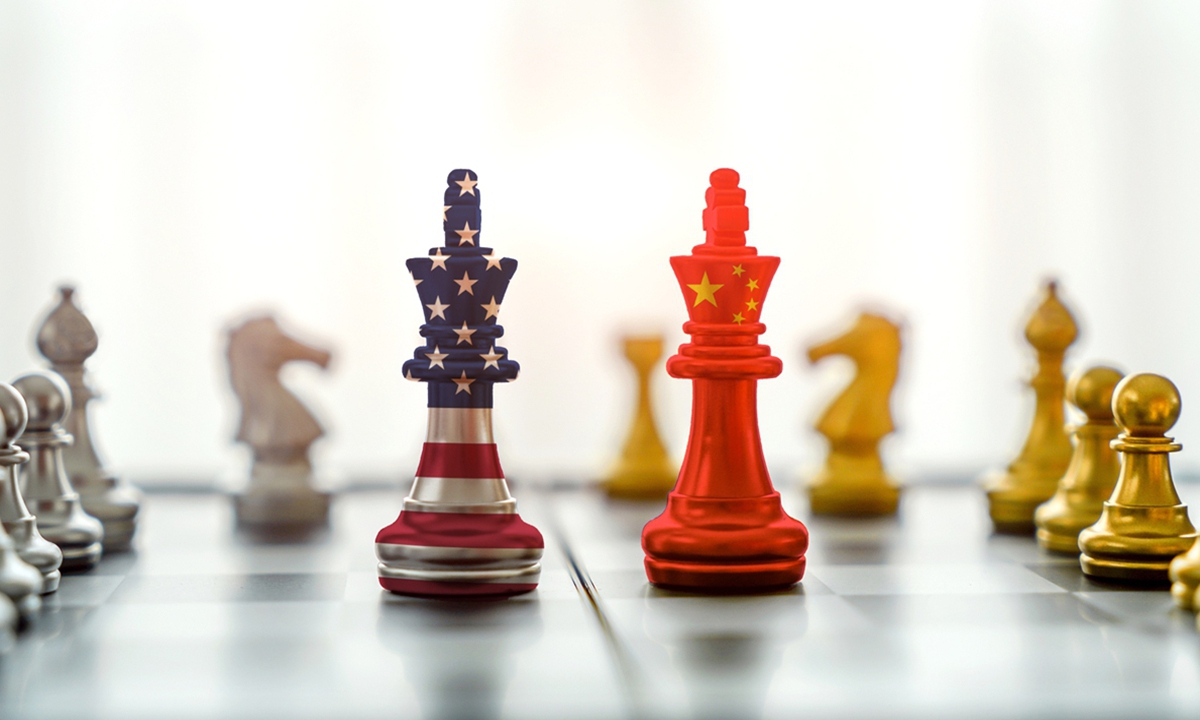
China US
In the past few years, the two recent US administrations have comprehensively adjusted their strategies toward China, and the policy of "engagement" has been replaced by "strategic competition." In the face of Washington's actions that pursue hegemony and power politics, China has, justifiably, resolutely counteracted and fought back. In the cycle of "US crackdown and Chinese counterattack," bilateral relations have seen a downward spiral.While we attach great importance to Washington's challenge, we should consider thinking beyond the US-China bilateral rivalry and focus on maintaining and enhancing China's overall connectivity with other parts of the world. In this way, we can win the long-term strategic game between China and the US, creating conditions for the great rejuvenation of the Chinese nation.
On the one hand, such a vision requires China to connect with the rest of the world. It has become a national consensus in China that opening-up brings progress, while closing the door would lead to backwardness. From the current stage of China's development to the full realization of the Chinese path to modernization and national rejuvenation, there is a greater need for full connectivity with the rest of the world.
On the other hand, the great changes that have not been seen in a century are bringing us the shock of confrontation, and camp politics. The development and rise of China is the most profound change, which has triggered Washington to worry about and attempt to suppress Beijing's development. US policymakers are now determined to exclude China from the interconnected world at all costs.
China's national rejuvenation endeavor requires us to maintain close connectivity with the rest of the world, especially developed countries which the US is trying to find ways to hinder. What is particularly important to note is that it is justified and reasonable for Beijing to counter Washington's "decoupling" actions, but it may also accelerate the "decoupling" from the opposite direction. Thus, how and when to take countermeasures will put our wisdom to the test.
The US' current strategy toward China is dangerous. The danger lies in not only Washington's various actions against Beijing, but also the US' attempt to push China out of the global political and economic network.
We need to see that, compared to 44 years ago when China-US diplomatic relations were established, one of the biggest changes in China-US relations is that China's national power has increased significantly, China is closely connected to the world, and China's ability to shape its bilateral relations has greatly increased.
First, on issues related to China's territorial sovereignty, political security, fundamental system, and other core interests, if the US responds with negativity, China is also pushed to respond negatively. China has no room for compromise and must deter US actions through resolute and strong countermeasures. The experience of the past few years shows that even if Washington promotes decoupling, as long as China responds properly and works in a targeted manner, a complete decoupling from China will be difficult to achieve.
Second, facing the US' negative moves, we need to adopt more positive approaches with Europe, Asia-pacific countries, and the vast developing world. The ASEAN countries and US allies in Europe and the Asia-Pacific region are particularly worthy of China's attention. It can be seen that other countries do not want to take sides between China and the US, and even some US allies are not fully in sync with Washington in their strategies toward China.
Third, we must recognize the complexity and diversity within the US. At present, conflicts between two sides are more at the bilateral or regional level, but on global issues such as climate change and public health, Washington still needs to cooperate with China, which is not only in the interest of both countries, but also the expectation of the whole world.
In face of the fundamental adjustment of the US strategy toward China, China, as a major power, should maintain its strategic focus, move beyond the bilateral level of competition between China and the US and unswervingly focus on promoting connectivity required by China's overall strategy of the great rejuvenation of the Chinese nation, especially with developed countries including the US. If we do this, we can win the race.
The author is director of the Center for International Strategy and Security and professor of department of International Relations at the Tsinghua University. opinion@globaltimes.com.cn



